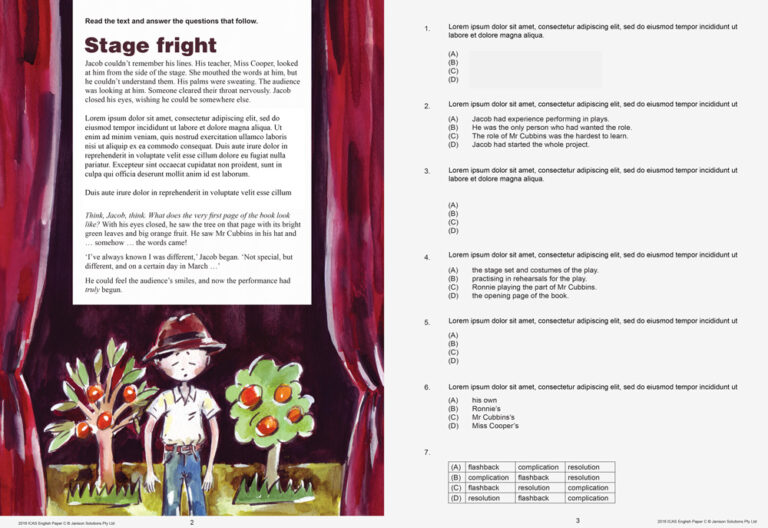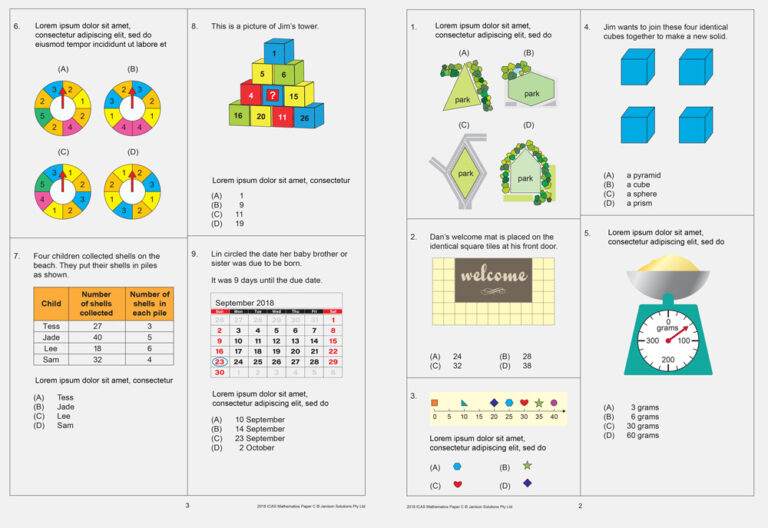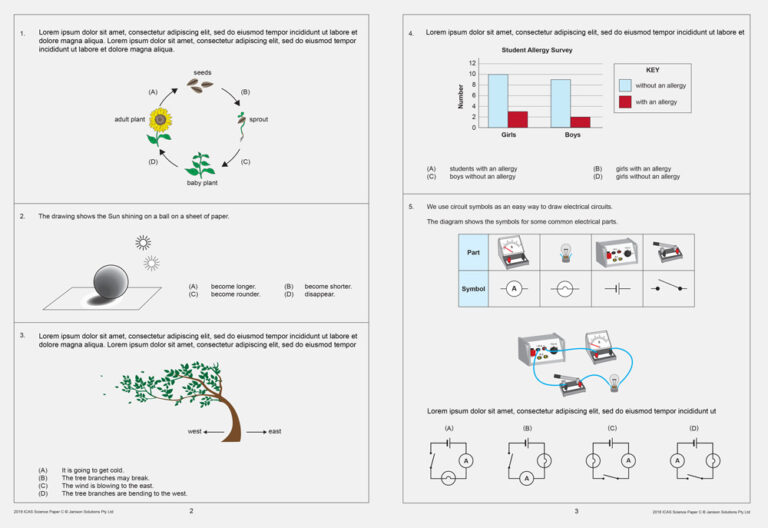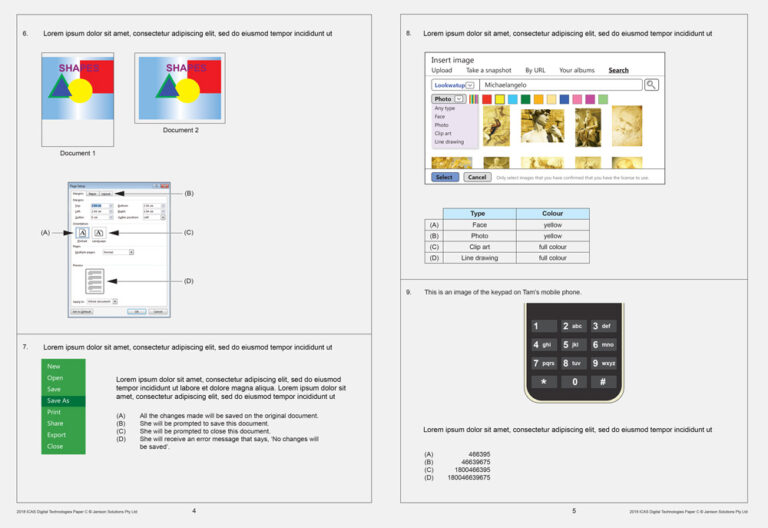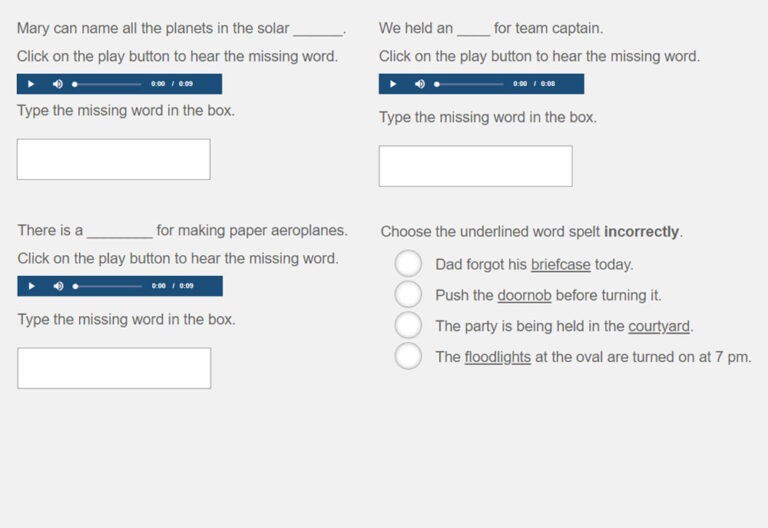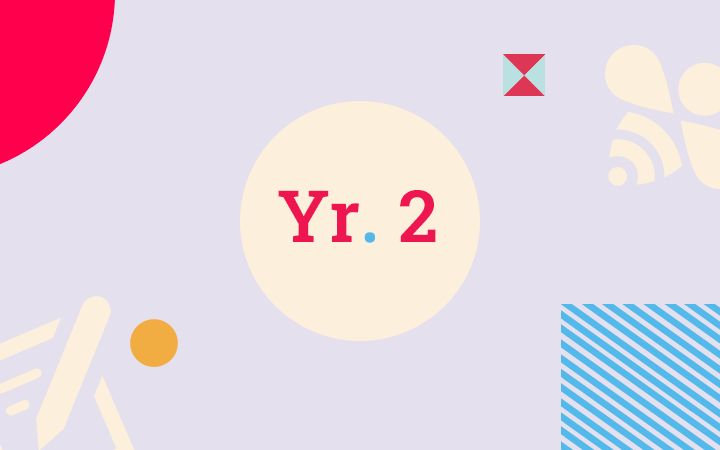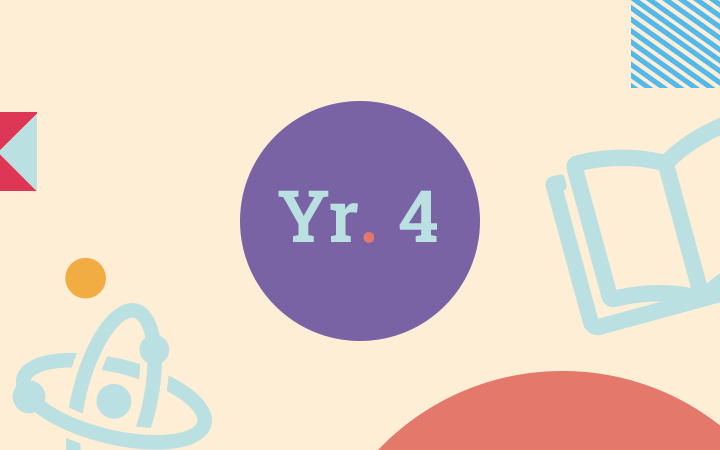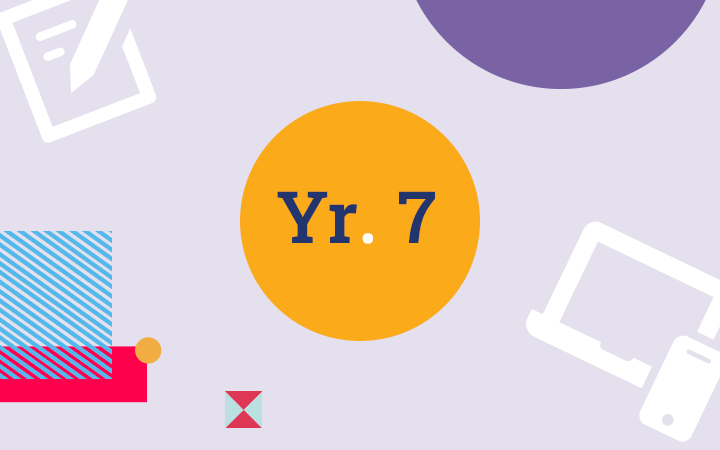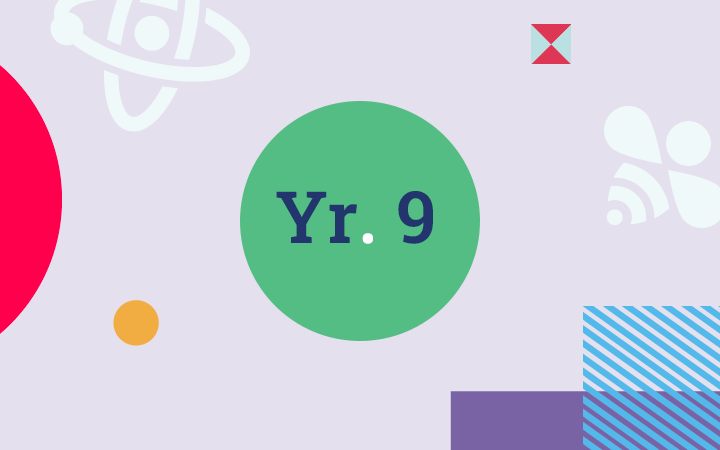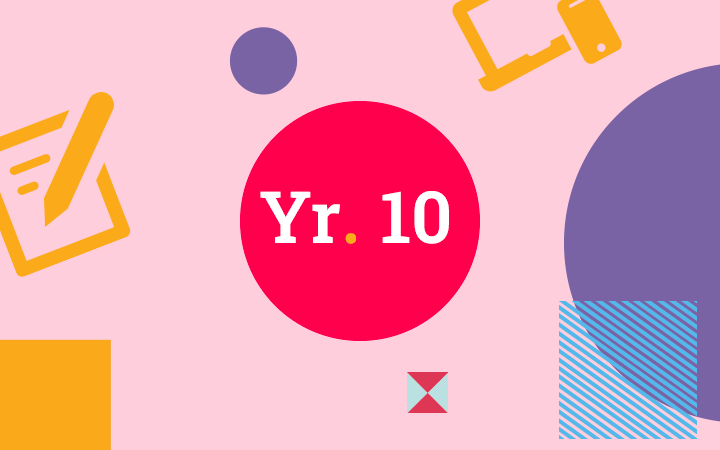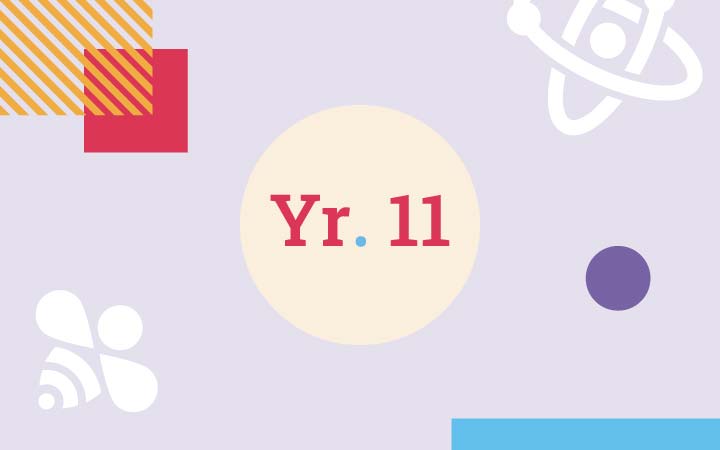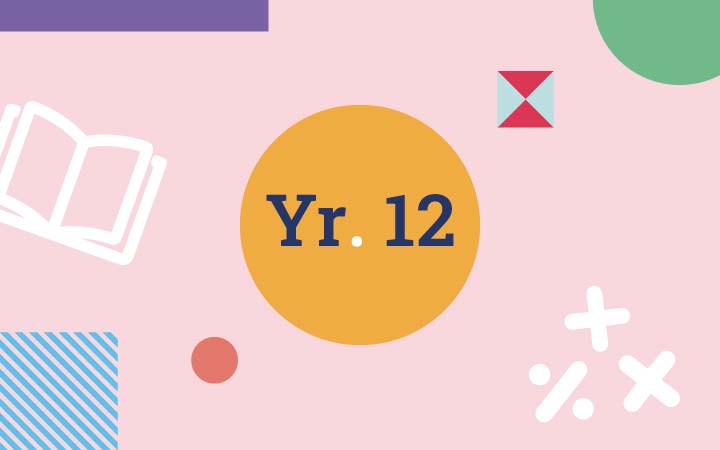ICAS Grade 5 Test
Exam papers can differ depending on the year level and country for ICAS. To find the correct Year 5 exam paper for your country, please see the “Exam papers by year level”
English
In this test, students explore four key areas:
- Comprehension -understand what the text is really saying
- Syntax -how sentences are built for meaning
- Vocabulary -decode and use rich language
- Writer’s Craft -spot techniques like similes and persuasive language
Tasks may include explaining events, comparing opinions, or naming writing techniques—all to show how well students read and think!
"Test More Than English—Discover Expression."
English isn’t just a subject—it’s the key to unlocking success in every classroom and beyond.
The ICAS English exam goes beyond rote learning, assessing real-world skills like critical thinking, interpretation, and communication.
Mapped to national curricula, it provides powerful insights into each student’s literacy journey.
Mathematics
The Year 5 ICAS Mathematics test challenges students across five key areas:
- Number & Arithmetic
- Algebra & Patterns
- Space & Geometry
- Chance & Data
- Measures & Units
Students will tackle exciting tasks like comparing and dividing numbers, solving puzzles, working with time, and spotting patterns—developing their logic and problem-solving skills every step of the way.
Mathematics isn’t just about numbers—it’s the language of logic, the core of STEM, and a powerful tool for solving real-world problems. The ICAS Mathematics competition offers students the chance to apply critical thinking, problem-solving, and reasoning skills in a fun, curriculum-aligned assessment. With questions designed to go beyond rote learning, students are encouraged to think flexibly and strategically. This test provides an objective benchmark of student performance, helping schools and families understand each learner’s mathematical strengths and opportunities for growth.
Science
The Year 5 ICAS Science competition encourages students to think like young scientists
They are assessed on essential scientific skills such as observing, measuring, predicting, concluding, and solving problems across a range of real-world contexts. Students may be asked to identify cloud patterns, examine crystal structures, compare solids, liquids and gases, or interpret simple electric circuit diagrams—fostering curiosity and critical thinking in the process.
"Turning Observations into Discoveries."
The ICAS Science competition challenges students to apply essential STEM skills through engaging, curriculum-aligned questions. Designed for Year 5 learners and beyond, this test helps uncover each student’s ability to observe, analyse, investigate, and problem-solve—mirroring the core processes of the scientific method. With an objective ranking system, ICAS Science provides schools with valuable insight into student performance and growth areas. It’s more than a test—it’s a chance for young minds to explore how science works in everyday life
Digital Technologies
The Year 5 ICAS Digital Technologies test explores key skills across programming, word processing, internet use, spreadsheets, graphics, and general digital tools. Students may be asked to format tables, identify hardware, create presentations, understand web concepts, and more — all designed to strengthen their digital fluency in a tech-driven world.
"Powering Young Digital Minds."
In today’s tech-driven world, digital literacy is as essential as reading and writing. From how we learn to how we live, technology plays a role in every aspect of modern life. The ICAS Digital Technologies assessment helps schools benchmark students’ tech skills against year-level curricula. Covering key areas like programming, internet use, data handling, and multimedia, it encourages confident, safe, and creative use of technology — both in and out of the classroom.
Spelling Bee
The Year 5 Spelling Bee challenges students to spell a diverse range of words that assess four key spelling skill areas:
- Visual knowledge -remembering the visual form of words
- Phonological knowledge -connecting sounds with letters
- Morphological knowledge -understanding word parts and how they build meaning
- Etymological knowledge -recognising word origins and patterns
Through this exciting challenge, students strengthen essential literacy skills that support reading, writing, and confident communication across the curriculum.
"Spelling Skills for Smarter Futures."
Strong spelling isn’t just about getting words right — it builds literacy, boosts confidence, and supports success in writing and communication. The ICAS Spelling Bee challenges students to apply key skills like sound-letter patterns, word building, visual memory, and word origins. It’s a fun, research-backed way to develop essential literacy skills — and a great way to spot and support young spellers early.

